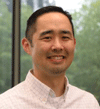
Pedagogy in the Unlikeliest of Places
Last week, Kate Blanchard challenged us to think about our roles as religious educators in light of Chapel Hill. How can I, as a biblical studies professor, teach students to think critically about the events that transpired? The task seemed so overwhelming, but I was thankful to receive inspiration in the unlikeliest of places: the Daejun National Cemetery in South Korea.
Korean veterans are entitled to a military service and burial in the National Cemetery. Last week, after the passing of a family member who happened to be a veteran of the Vietnam War, I attended services for him and seven other veterans who had passed that week. In order to honor the diverse religious backgrounds of the deceased, the Korean army chaplains thoughtfully organized a broad ecumenical service. For this particular service, there were four religious leaders: a Buddhist monk, a Buddhist nun, a Catholic Priest, and a male Protestant minister.
Although the religious discourse among Christians and Buddhists in Korea can be quite contentious, the four leaders of the service were thoroughly respectful. As neither Buddhism nor Christianity is monolithic, each of these religious leaders dressed differently, prayed differently, read from different sacred texts, even physically positioned themselves differently when it came to their turn to lead the service.
But I was struck by how unified the four of these leaders were, despite their fundamental differences. The service transitioned seamlessly from monk to nun to priest to minister. All four of them focused on the overarching theme of honoring the lives of the veterans, as well as offering prayers for peace in the midst of mourning by the loved ones who filled the room. The similarity in cadence of Korean Christian prayers and Buddhist chants was remarkable. I would not describe it as syncretistic, but Korean culture undoubtedly imparts itself on all of its religious expressions
As I reflected on the service, I wondered why I never mention Buddhism in any of my courses. Of course, I teach biblical studies and Hebrew, but Buddhism is part of my own narrative. I have memories of family rituals that centered on the veneration of ancestors. I can remember the smells of the incense, the cramped room where I had to bow and the voice of my grandfather giving instruction. These experiences surely have some influence on my own understanding of biblical texts that deal with ritual in death, such as the royal burial formula, “And he lay with his ancestors” (1 Kgs 2:10; 11:43; 14:20).
By describing my own family connection to Buddhism, I could accomplish two things pedagogically. First, I could model an intentional awareness of my own narrative and how it influences my reading of a biblical text. Second, I could use this background to humanize Buddhist faith. Many of my students did not grow up with Buddhists, and perhaps their vision of Buddhism is filled with media-driven stereotypes. In offering my story, perhaps I can help my students get a better sense of the shared humanity within all of us despite our religious differences.
For those of us at confessional schools, I think we can do so without violating our institutional or  ecclesial commitments. We can share narratives without having to make value judgments. Chapel Hill teaches us that uncritical “othering” is dangerous, plain and simple. Most importantly, these events signal that all of us, regardless of our fields, must share the burden traditionally handed over to Comparative Religions professors. We have much to contribute so that our students can develop a mature understanding of the world’s diverse religious traditions.
ecclesial commitments. We can share narratives without having to make value judgments. Chapel Hill teaches us that uncritical “othering” is dangerous, plain and simple. Most importantly, these events signal that all of us, regardless of our fields, must share the burden traditionally handed over to Comparative Religions professors. We have much to contribute so that our students can develop a mature understanding of the world’s diverse religious traditions.
I am not a practicing Buddhist. I do not know the Sutras, and I have never been to a Buddhist temple except as a tourist. But I have a story. And that is an important piece that I can bring to religious education after Chapel Hill.
